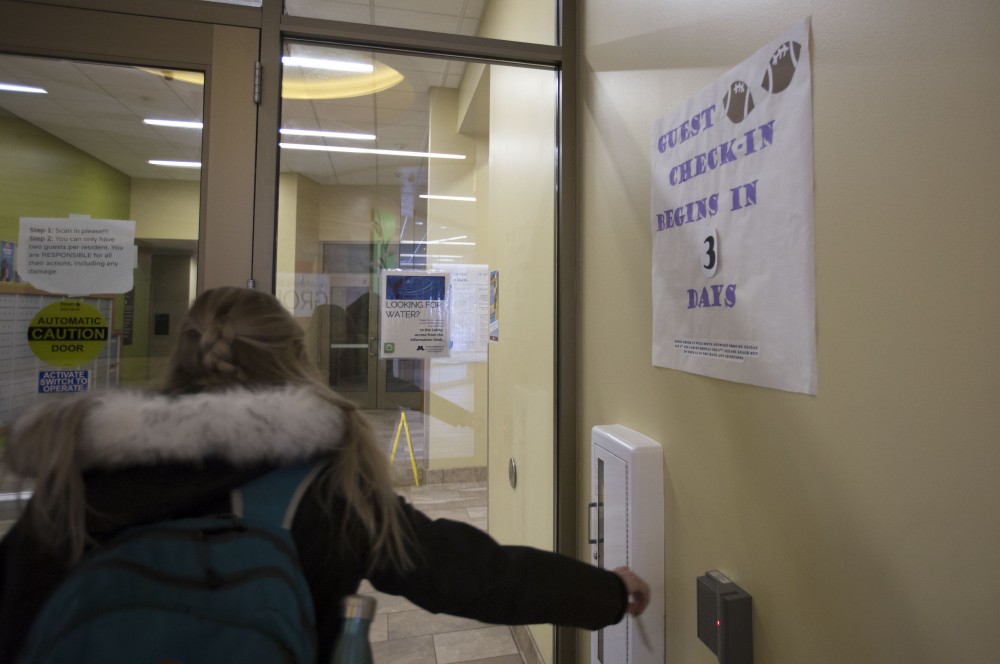Tensions are rising on the University of Minnesota campus as the Super Bowl brings fans, events and potential security threats to freshman dorms.
Residence halls are preparing for an influx of people surrounding the upcoming game by increasing community advisor and security monitor presence, limiting students’ visitors and discouraging students from renting out their rooms to fans.
Associate Director of Housing and Residential Life Susan Stubblefield, said a standard protocol for all dorms has been put in place to run from Feb.1 to Feb. 5.
Super Bowl LII is set to take place at U.S. Bank Stadium Feb. 4.
“The Super Bowl is unprecedented,” Stubblefield said. “All of the events happening on campus are unprecedented as well.”
According to an email from HRL distributed Jan. 26 to all residents in University housing, a maximum of three guests per resident are allowed to enter residential halls in the days before and after the game.
The email specified that each guest must bring photo identification and can only be escorted in by their resident host.
For residents who do not have guests coming in, there will be a “fast track” lane to let students quickly scan their U card without the extended wait.
In addition, HRL will add a second set of community advisers to respond to resident concerns during Super Bowl weekend.
University HRL is also partnering with the University Security Monitor Program to increase visibility and safety throughout the residence halls, Stubblefield said.
Resident Selena Zingsheim, a freshman in 17th Avenue Residence Hall, said it shouldn’t be so difficult for students to access University buildings.
“I understand why they’re doing it, especially in the dorms, but it is an inconvenience,” she said of the security measures.
Ben Wiley, another resident of 17th Avenue Residence Hall, said the slight inconvenience is worth the extra security.
HRL has been preparing for a myriad of possibilities, some of which are difficult to predict, Stubblefield said.
“We had to plan not knowing who the teams were going to be,” she said, adding that without the Minnesota Vikings as a participating team, she feels the level of enthusiasm will be different.
While security is a main concern, the University is also working to keep students from renting out their dorms for the weekend to make extra money.
“There has been so much in the media … about hotels being sold out, people renting their houses … we thought it would be a good idea to communicate that to our students,” Stubblefield said of the student housing contracts, which explicitly prohibit renting out rooms in residential halls.
Director of University Student Legal Services, Mark Karon, said the possibility of students subleasing their dormitories is a legitimate concern and violates the terms of their lease.
“If students were contemplating [renting], we would hope they would try and come in and see someone here to make sure that whatever they are trying to do won’t expose them to any harm or illegal consequences,” Karon said.







